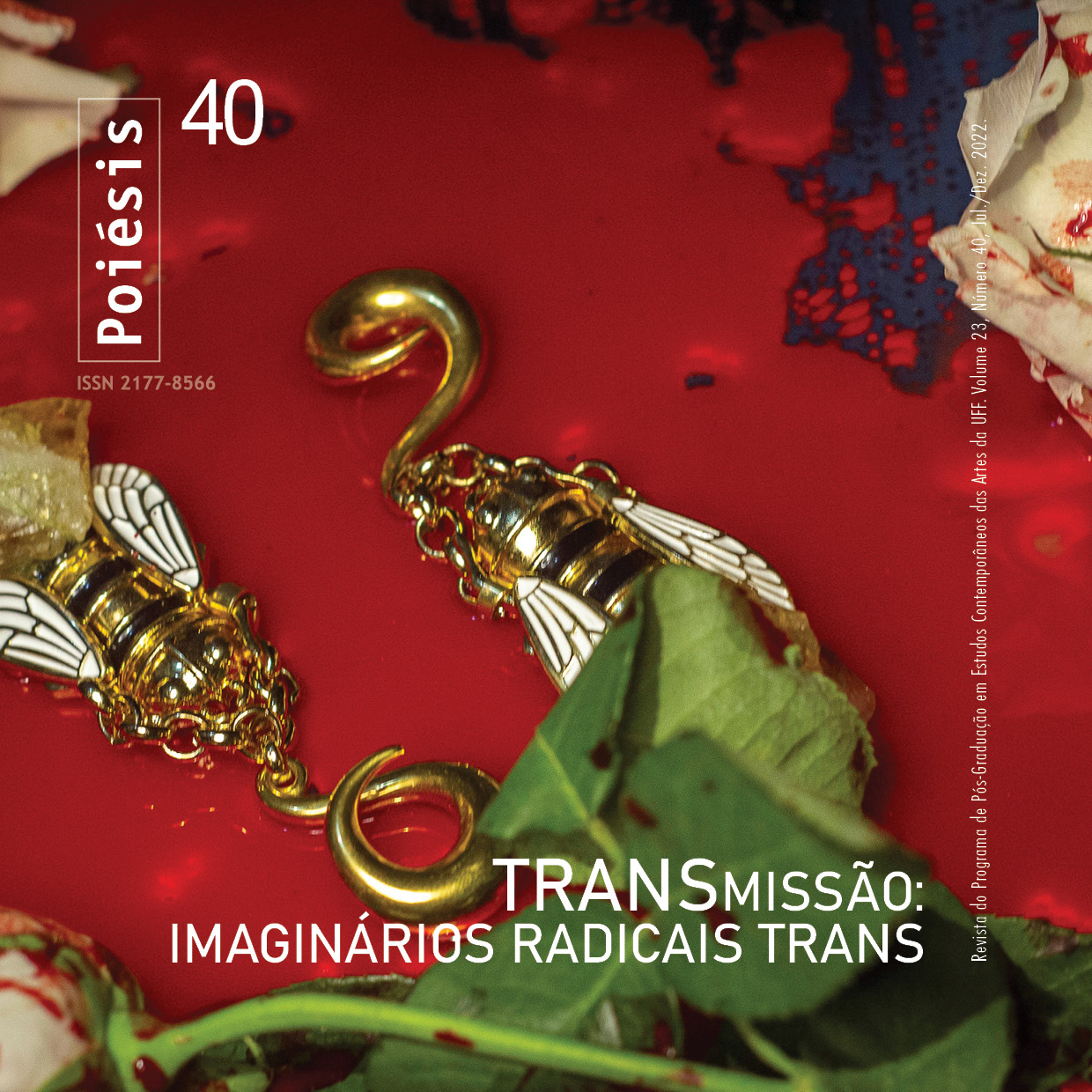À Mesa, em abismo
DOI:
https://doi.org/10.22409/poiesis.v23i40.53031Palavras-chave:
Francis Ponge, mesa, abismo, coisa, objetoResumo
A partir do texto À Mesa, do escritor e poeta francês Francis Ponge e publicada numa coletânea de textos de Ponge, e do livro de Derrida sobre o escritor, intitulado Signéponge = Signsponge, o(a) autor(ra) desenvolve um texto poético em abismo, sobre a coisa e o objeto, como alteridades, seu surgimento na e para a palavra, o sujeito e a assinatura, ambos espectrando um ao outro e à coisa/objeto, fazendo relações com trabalhos de artes visuais dos artistas: a dupla Andréa Hygino e Lz Coimbra, e sua série de gravuras Prova de Estado, Cildo Meireles – e os trabalhos Inmensa e Antes –, e Milton Machado – com seu trabalho Diáfora – , que têm como tema a mesa e seus desdobramentos em infinitos, abismos e sonoridades.
Downloads
Referências
DECRÉAU, JACQUES. https://pierresel.typepad.fr/la-pierre-et-le-sel/2012/03/francis-ponge-le-probl%C3%A8me-de-lexpression.html#null), consultado em 10/2021.
DERRIDA, Jacques. Signéponge = Signsponge. Nova York: Columbia University Press, 1984.
HADDOCK-LOBO, Rafael. Derrida e o labirinto de inscrições. Porto Alegre: Zouk, 2008.
PONGE, Francis. À mesa. Tradução Ignacio Antonio Neis e Michel Peterson. São Paulo: Illuminuras, 2008.
Publicado
Edição
Seção
Licença
Copyright (c) 2022 Elisa de Magalhães

Este trabalho está licenciado sob uma licença Creative Commons Attribution-NonCommercial-NoDerivatives 4.0 International License.
Autores(as) que publicam na Revista Poiésis concordam com os seguintes termos:
- Os(as) autores(as) mantêm os direitos autorais e concedem à revista o direito de primeira publicação. O trabalho é automaticamente licenciado sob a Licença Creative Commons Attribution, o que permite o seu compartilhamento desde que seja feito o reconhecimento da autoria e da publicação inicial nesta revista.
- Os(as) autores(as) têm permissão e são estimulados a distribuir online seu trabalho publicado na Revista Poiésis (em repositórios institucionais ou em sua própria página pessoal), uma vez que isso pode gerar interações produtivas, bem como aumentar o impacto e a citação do trabalho publicado (Veja O Efeito do Acesso Livre).


